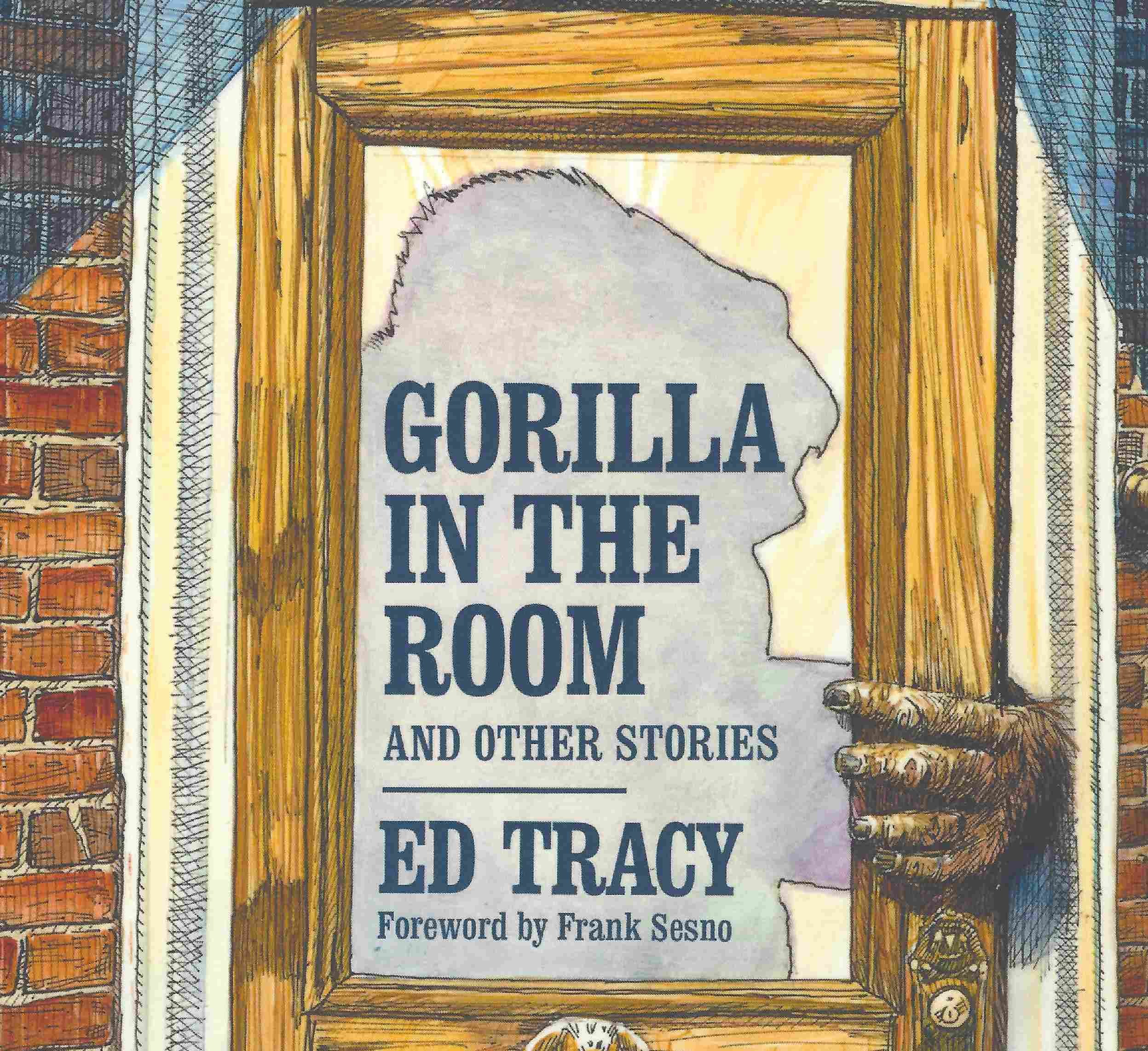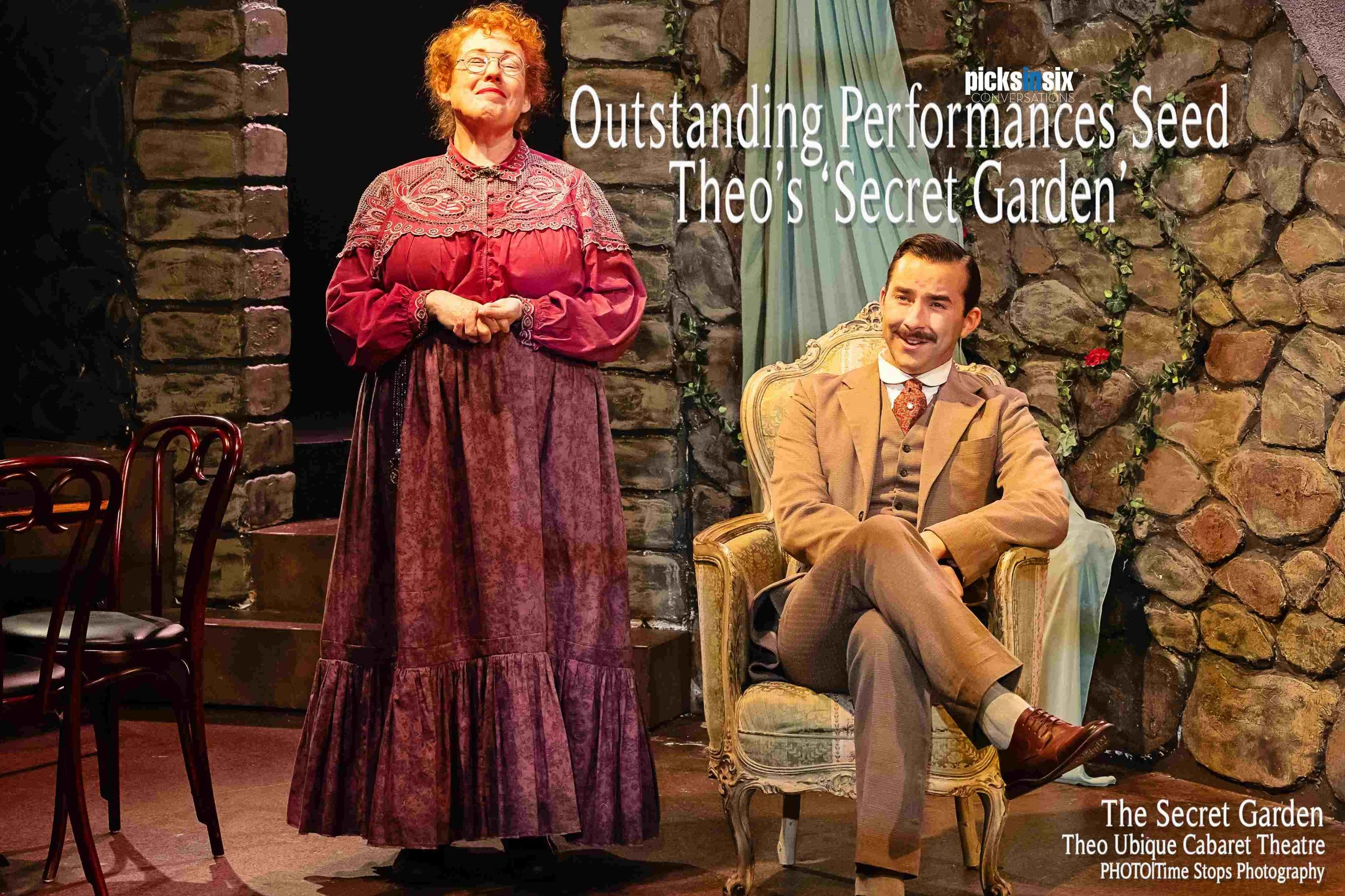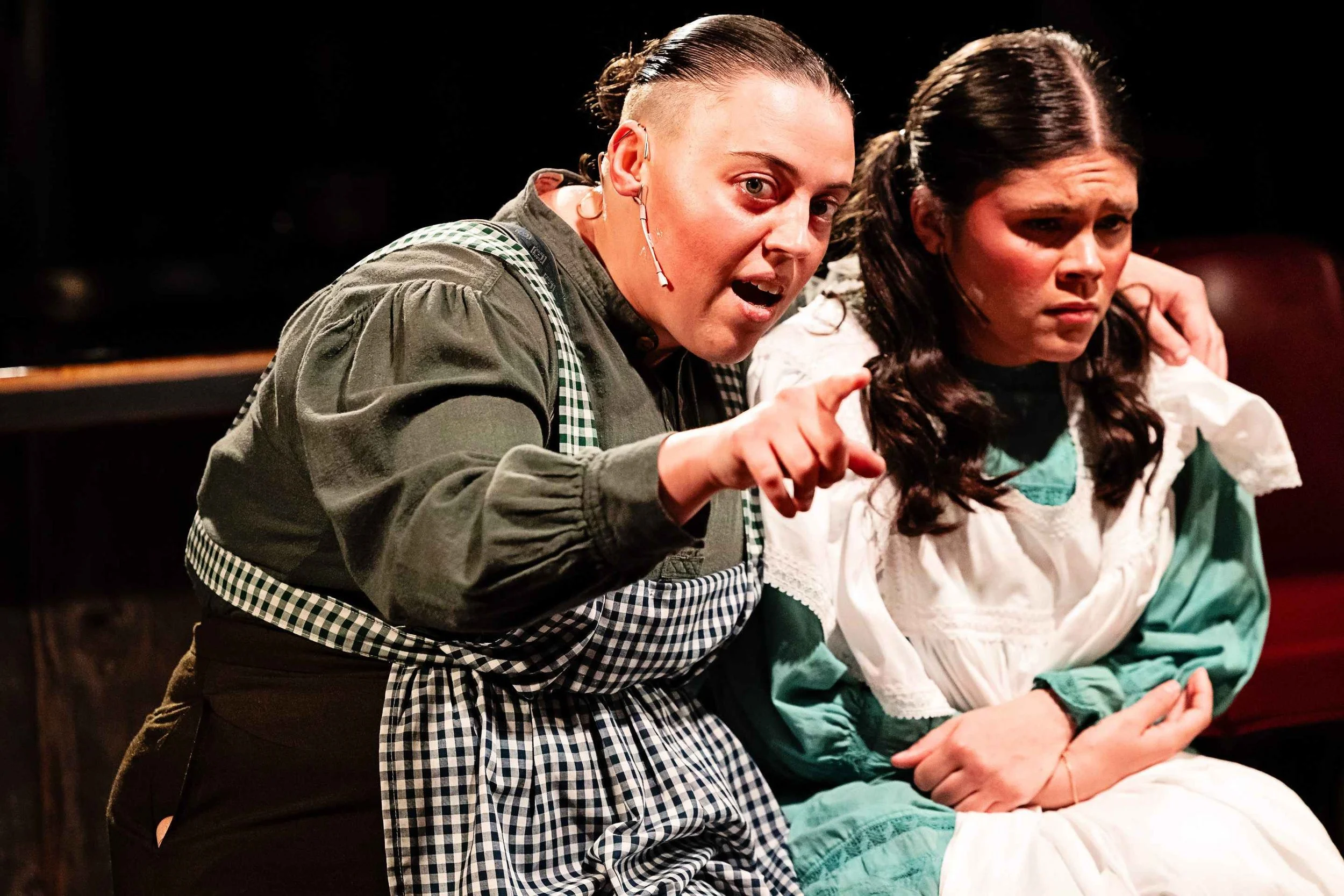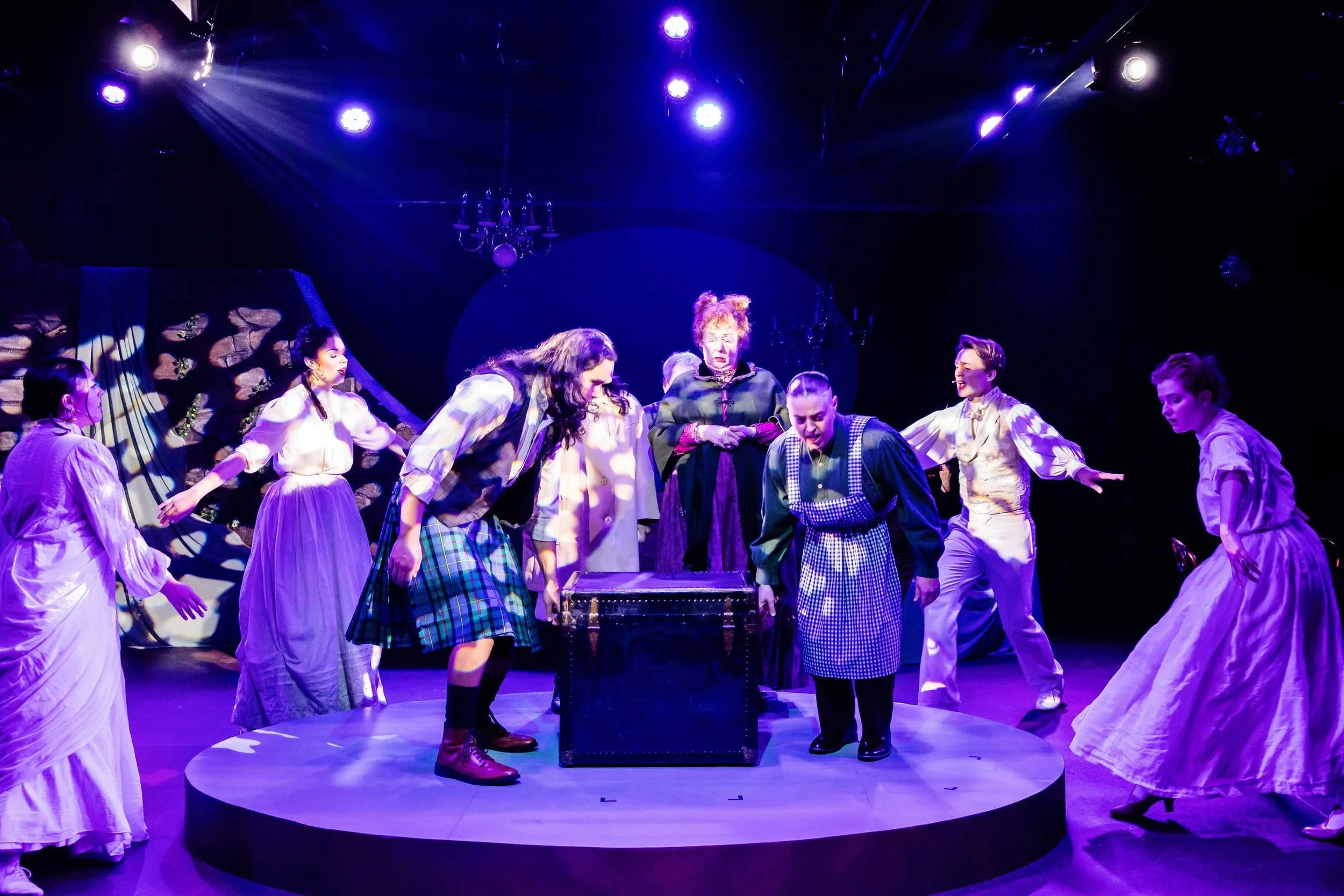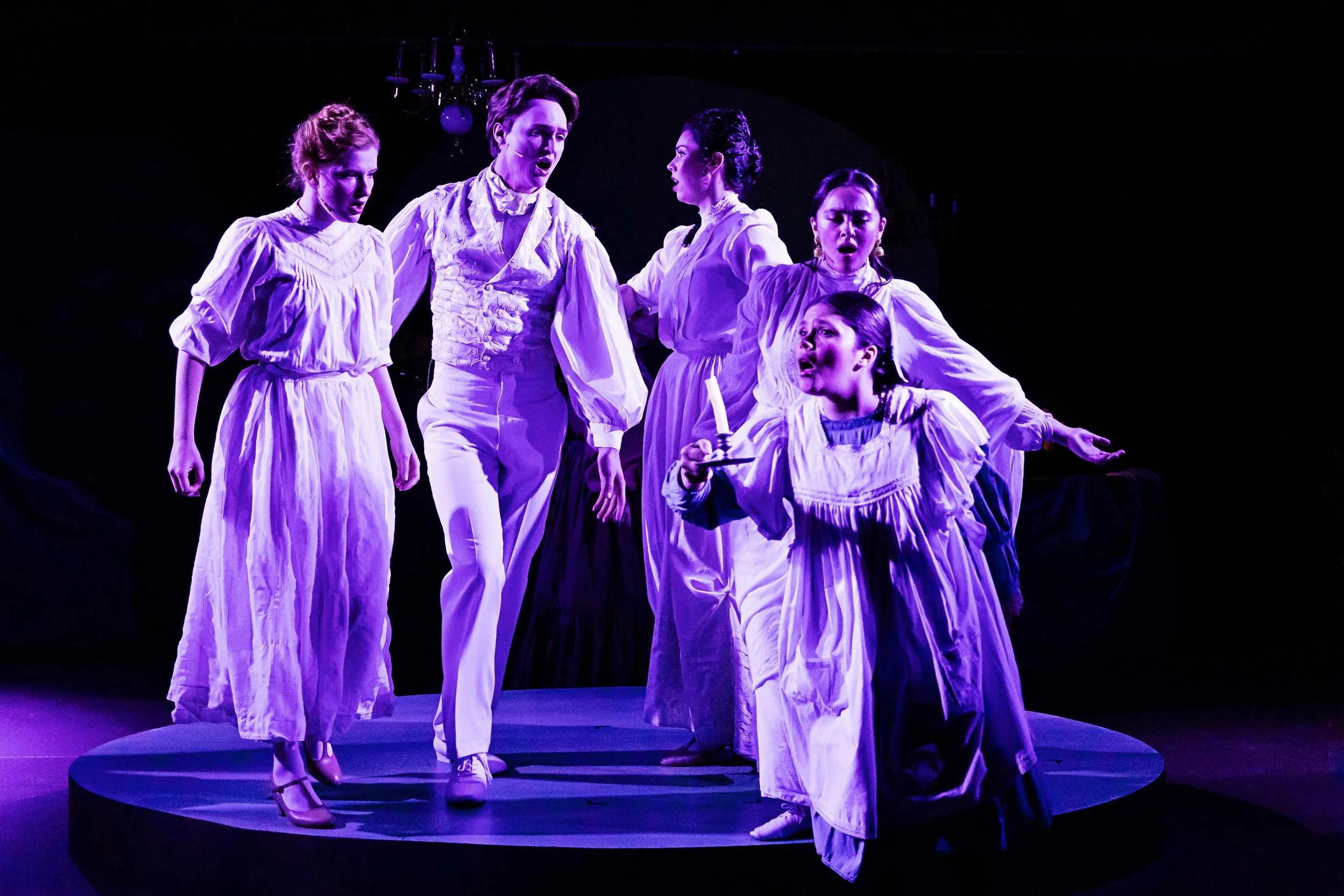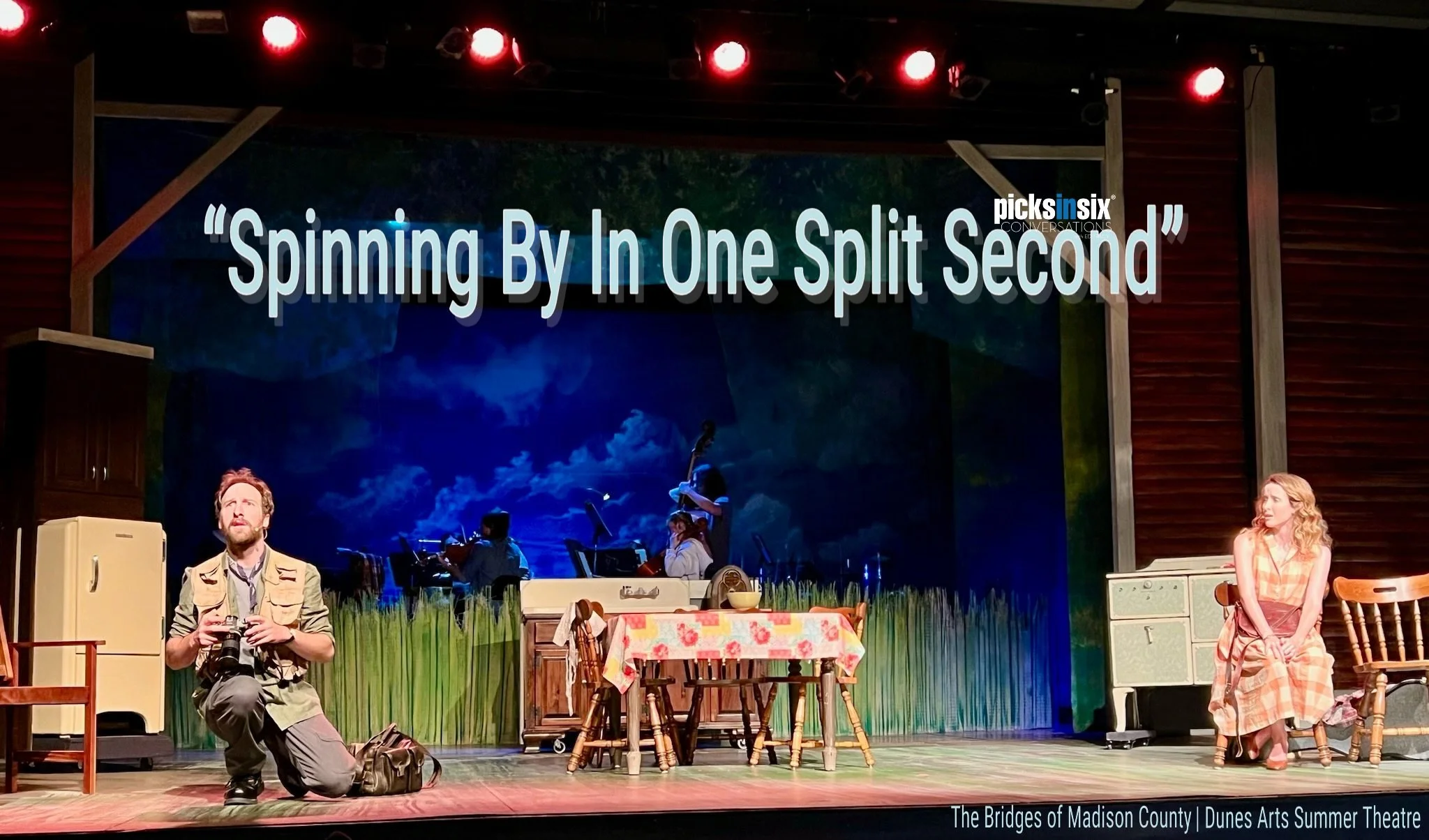PicksInSix Review: The Color Purple - Goodman Theatre
High Wattage Hit at Goodman Theatre!
PicksInSix® Gold Review | Guest Contributor | Catey Sullivan
It’s been 43 years since I first read Alice Walker’s Pulitzer-winning novel “The Color Purple,” yet I can vividly recall how stunned I was by its immersive, explosive power. Walker’s great American novel (arguably the Great American Novel) is a testimony to the unstoppable power of language and storytelling.
The musical version of “The Color Purple” debuted 21 years ago in collaboration with Walker, featuring a score and lyrics by Brenda Russell, Allee Willis, and Stephen Bray, with a book by Marsha Norman. Directed by Lili-Anne Brown for the Goodman Theatre, “The Color Purple” has the wattage of a thousand suns. Running through August 3 at the venerable Loop theater, Brown has shaped the musical into a tale of resistance, joy and humanity in a world that is systemically dehumanizing. The musical might be decades old, but its themes have never been more timely.
The Tennessee-set, sprawling plot spans from 1911 to the 1940s, and is centered on Celie (Brittney Mack), 14 and pregnant when “Purple” opens. Like the book, the musical doesn’t flinch from the brutality Celie endures for decades, first from her father, and then from her husband. Celie is an Everest of a role: The character evolves over the course of more than three decades. Mack delivers with relentless intensity that travels the emotions spectrum alpha to omega. Her barn-burning vocals blaze through a score that incorporates blues, jazz and demanding a cappella phrases—a live orchestra.
Also unforgettable: Nicole Michelle Haskins’ Sofia, a strong-willed woman who carries herself like a queen and is proportionately respected. Haskins turns Sofia’s “Hell No” into the anthem of a revolution.
As Celie’s heinously cruel husband Mister, Evan Tyrone Martin goes from despicable to something like compassionate, with a hallucinatory mental breakdown in between. Martin makes every note ring true. Celie’s world begins to brighten with the arrival of Mister’s lover Shug Avery (Aerie Williams), a juke joint chanteuse with the seductive powers of a Siren. Williams moves through the raucous, sex-positive “Push the Button” with a celebratory carnality that rightfully stops the show.
Finally, there’s Sean Blake as Mister’s father Old Mister, the owner of land he was once enslaved on. Blake has been consistently excellent since his days playing Richie in “A Chorus Line” at the long-gone Pheasant Run dinner theater in the olden, Pre-Millennium days. He does not disappoint here. Listen for Old Mister’s, wrenching, blistering monologue toward the finale. In that one passage, Blake makes your entire perception of the character change.
Breon Arzell’s wildly creative choreo is storytelling in motion, its vocabulary moving between Praise Dance, African traditions, burlesque, and ballet, plus dance hall blowouts that evoke Archibald John Motley Jr.’s “Nightlife.” At one point, Arzell puts his own spin on Bob Fosse’s iconic amoeba dance. It’s simply marvelous.
Set designer Arnel Sancianco pays homage to Walker in the opening scene, text from the book faintly visible over a massive clothesline. Veils of Spanish Moss hang from above, the botanic signature of the Deep South’s singular climate.
Brown’s sensitive, astute direction, paired with music director Jermaine Hill’s inspired work, makes the show seamless. As “The Color Purple” winds up toward its roof-raising finale, Celie leans into a climactic vocal moment “I’m Here” with a belt of galvanic force. Mack makes the number feel like a battle cry. “The Color Purple” was revolutionary way back in ‘82. It remains so at the Goodman, where Brown captures struggle and triumph with the fire of a preacher at a revival.
GUEST CONTRIBUTOR | CATEY SULLIVAN has been covering Chicago theater for more than 30 years. Her work has been published in the Chicago Sun-Times, Chicago Reader, Windy City Times, Playbill, Chicago Magazine, Chicago Tribune and New City, among others. She has an MFA in creative writing from the University of Illinois.
PHOTO|Brett Beiner
Goodman Theatre
presents
THE COLOR PURPLE
Albert Theatre
170 North Dearborn
EXTENDED through August 3, 2025
WEBSITE
For more reviews, visit: Theatre In Chicago
PicksInSix® is a registered trademark of Roxbury Road Creative, LLC





